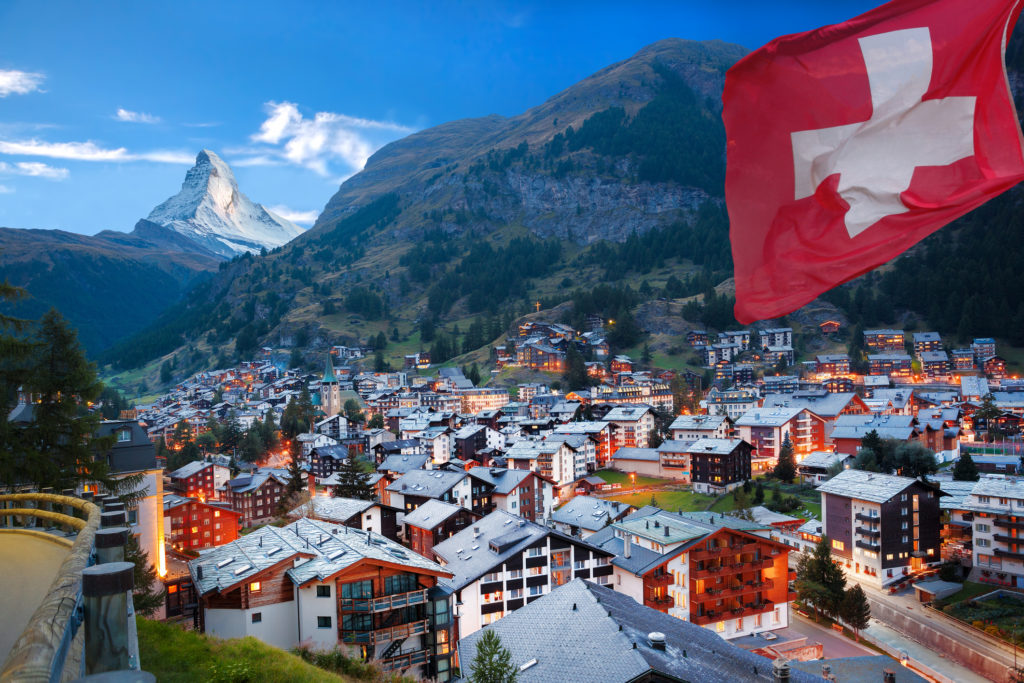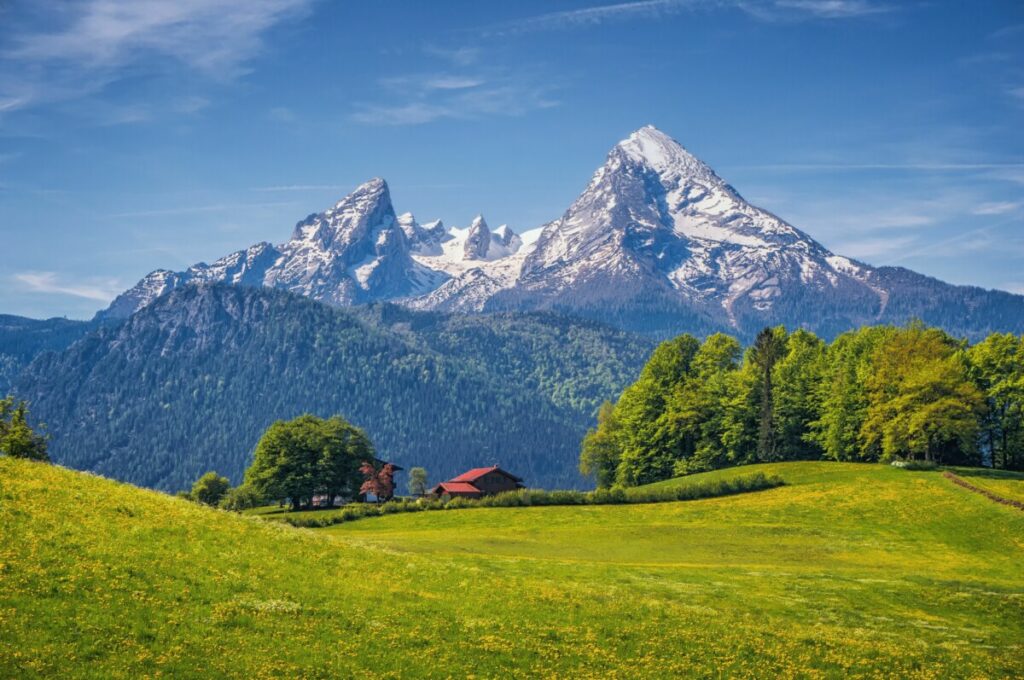
Hello there, language lovers! Today, we’re going to dive into the fascinating world of Swiss German, a unique and colourful dialect spoken in Switzerland. Swiss German is a language full of surprises, and you’ll find that many of the words and phrases are different from the ones used in High German.
In this post, we’ll explore 15 of the most famous and useful words and phrases in Swiss German, and we’ll explain what they mean and how to use them. Are you ready? Let’s get started!
1. Grüezi (Hello)
Grüezi is the Swiss German equivalent of “hello”. It’s a common greeting used throughout Switzerland, and it can be used in formal and informal situations, although when encountering friends and younger people, greeting with a ‘Hoi’ is also acceptable. When greeting several people, add the word ‘mitenand’ to indicate plurality.
Example: “Grüezi mitenand, wie gaht’s?” (Hello everyone, how are you doing?)
2. En Guete (Bon appétit)
Unlike the widely used ‘Bon appétit’, the Swiss say ‘En Guete’. It’s used when someone is about to eat a meal or snack.
Example: “En Guete, ich ha miitagspause!” (Bon appétit, I have a lunch break!)
3. Sali (Hi)
Sali is a casual greeting that is commonly used among friends or acquaintances. It’s similar to saying “hi” or “hey.”
Example: “Sali, wie gaht’s dir?” (Hi, how are you doing?)

4. Tschüss
Tschüss is a common Swiss German expression used to say “goodbye.” It can be used in formal and informal situations.
Example: “Tschüss, bis zum nächste Mal!” (Goodbye, see you next time!)
5. Merci
The French-born Merci is the Swiss German equivalent of “thank you.” The German ‘Danke’ is as widely used, and it tends to be more common in informal situations, whilst ‘Merci’ is more present in formal ones. However, showing gratefulness is always appreciated, no matter what word you use.
Example: “Merci vilmal für dini Hilf!” (Thank you very much for your help!)
6. Chasch du Schwizerdütsch rede?
This phrase means “Can you speak Swiss German?” It’s a useful question to ask if you’re in Switzerland and want to practice your Swiss German. You might also get that question asked here… very often.
Example: “Chasch du Schwizerdütsch rede? Ich wott mini Sprachefähigkeite verbessere.” (Can you speak Swiss German? I want to improve my language skills.)
7. Wie heisst das uf Schwizerdütsch?
This means “What is this called in Swiss German?” It’s a handy question to ask if you’re learning Swiss German and want to expand your vocabulary.
Example: “Wie heisst das uf Schwizerdütsch? Ich han das Wort no nie ghört.” (What is this called in Swiss German? I’ve never heard that word before.)
8. Gäll
Gäll is a Swiss German particle that is used to seek agreement or confirmation. It’s similar to saying “right?” or “isn’t it?”
Example: “Das isch eifach z’kompliziert, gäll?” (That’s just too complicated, right?)

9. Uf Widerluege
Uf Widerluege is a polite way of saying “goodbye” in Swiss German. It can be used in formal and informal situations.
Example: “Danke för dis Bsüech, uf Widerluege!” (Thank you for your visit, goodbye!)
10. Chuchichäschtli
Chuchichäschtli is a Swiss German word that refers to a kitchen cabinet or cupboard. It’s a fun word to say and can be used to impress your Swiss friends.
Example: “Wo hesch dini Gläser gschtellt? Im Chuchichäschtli?” (Where did you put your glasses? In the kitchen cabinet?)
11. Muesli (Müesli)
Muesli is a Swiss German word that refers to a popular breakfast dish made with rolled oats, nuts, fruits, and yogurt or milk. It’s a delicious and healthy way to start your day.
Example: “I ha hüt Morge Müesli gässe, das git mer immer vill Energie.” (I had muesli for breakfast today, it always gives me a lot of energy.)
12. Znüni
Znüni is a Swiss German word that refers to a mid-morning snack. It’s a common tradition in Switzerland to have a small snack and coffee or tea between breakfast and lunch. For the mid-afternoon snack that kids usually have a school, the word is Zvieri (at four in the afternoon).
Example: “Machsch du Znüni Pause mit mir? Ich ha es Brötli und es Stückli Schoggi.” (Will you take a snack break with me? I have a roll and a piece of chocolate.)

13. Chäs
Chäs is a Swiss German word that means “cheese.” Switzerland is famous for its delicious cheeses, including Emmental, Gruyère, and Appenzeller.
Example: “Ich liäbe Chäs, am liebste esse ich Raclette mit Guetzli.” (I love cheese, my favorite is eating raclette with crackers.)
14. Röschti
Röschti is a word that refers to a traditional Swiss potato dish that is similar to hash browns. It’s a delicious side dish that goes well with sausages, eggs, and other breakfast foods.
Example: “Zum Zmorge mache ich immer Röschti, es passt perfekt zu Spiegelei und Speck.” (For breakfast, I always make Röschti, it goes perfectly with scrambled eggs and bacon.) (Although we have to say, having always Röschti for breakfast might not be the best idea!).
15. Guetzli
Guetzli is a Swiss German word that means “cookies”. Switzerland has different kind of delicious and beautiful Christmas cookies, including Spitzbuben, Zimtsterne, and Mailänderli.
Example: “Ich ha es Rezept für Guetzli usprobiert und es sind sehr guet gwordä!” (I tried a cookie recipe and they turned out very good!)
In conclusion, Swiss German is a fascinating and unique dialect that is full of surprises. Learning these 15 famous and useful words and phrases in Swiss German can help you communicate more effectively and impress your Swiss friends. Remember to practice your pronunciation and have fun with the language. Grüezi and viel Glück! (Good luck!)
